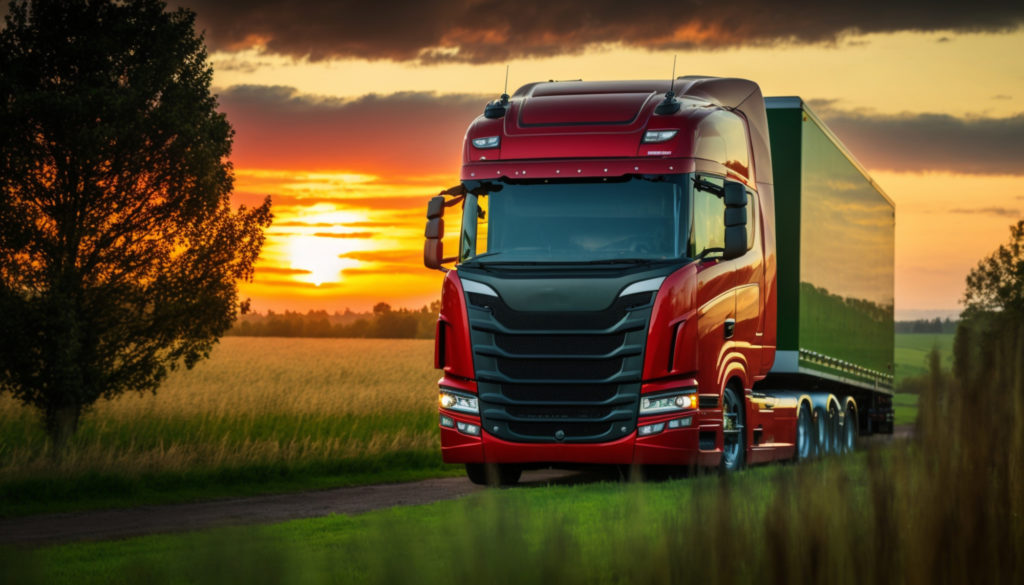Delivery trucks are necessary for a thriving economy, especially in industries such as manufacturing, sales, and transportation. With their decent size, horsepower, fuel efficiency, and durability, they can increase productivity and revenue across many enterprises.
If you have a growing business, a commercial fleet with medium-duty trucks can improve your work tenfold for less cost. They’re cheaper than heavy-duty trucks but still offer considerable service. However, before investing in these vehicles, you must put these few things into consideration.
1. Engine And Fuel
Trucks consume a lot of energy transporting goods. Hence, picking a vehicle with a powerful engine should be one of your top concerns. A truck’s engine can distinguish between a smooth ride and a long, arduous haul.
Depending on the manufacturer, a medium-duty truck may use a gas or diesel engine. Your chosen type will affect your truck’s mileage, budget, operating time, and costs. If you expect your fleet to perform long deliveries, a diesel engine may be your best option as it’s more robust. The downside is that it needs more care, as repairing a damaged diesel engine will cost you a lot of money.
On the other hand, gas engines are more affordable and have lower service costs, which are ideal for smaller businesses. Gas engines are also better if you carry lighter loads and only travel short distances. Otherwise, diesel is preferred.
Whatever the fuel preference, opting for a truck with a powerful engine is beneficial, which is only one of the many reasons to choose Paccar for your next medium-truck purchase.
2. Gross Vehicle Weight Rating
A truck’s government’s gross vehicle weight (GVWR) is the maximum weight the vehicle is designed to carry. Businesses and truck owners must follow the requirements since they prevent vehicle overloading, which may cause road accidents. Medium-duty trucks’ GVWR usually falls between 4,309 kilograms to 14,969 kilograms.
Your local GVWR rating requirements may differ from other states, so it is essential to research, as failure to adhere to regulations could result in hefty fines.
Before investing in a medium-duty vehicle, ensure your products are within the recommended weight ranges to keep your truck driver, pedestrians, and other motorists safe during transport.

3. Cargo And Function
The function of the truck and the kind and quantity of cargo are factors when choosing a delivery vehicle. Medium-duty trucks come in various specifications, so some types work better than others, depending on these factors.
For example, a dry freight or cube body truck is ideal for boxed goods and perishable products, so professional moving services utilize them. A flatbed would be better for large construction supplies and machinery. If you’re a mechanic, a truck with a crane and utility bed suits you better.
4. Driver Comfort
An essential factor every business owner must remember is the comfort of their truck drivers. Delivering goods from one location to another is a challenging feat, as some shipmates can take hours to a whole day to complete. Thus, your medium-duty truck must be conducive for long-haul journeys.
Your truck should have comfort features like air conditioning, ergonomic seats, and cruise control to lessen the driver’s stress. Safety options are also non-negotiables, as disasters can happen anytime when a truck lacks safety features. The vehicle must have airbags, mirrors, traction control, and working lights.
Drivability is another thing to keep in mind. Most trucks enter cities and factory lots aside from passing through highways. If your medium-duty truck is not maneuverable in smaller areas like these, it’ll be more challenging for the driver to control the vehicle. So, check for the truck’s wheel size, axel, and cab weight, as these factors affect the turning radius.
5. Vehicle Age
Buying a used truck or a new one is another factor you can consider. While second-hand vehicles are cheaper, you may have to shell out more cash in the long run for impending repairs. An older medium-duty truck may be a hassle in a commercial fleet without proper maintenance. It could suddenly stop on a highway, and you’d need to jumpstart its battery manually, causing a delivery delay.
If your budget is high enough, buying a new medium-duty truck is best. The parts should be in excellent shape, saving you time and money from repairs. Whether you choose a new or used truck, you still must inspect and test drive the vehicle. Consider bringing over a licensed mechanic to assist you in inspections.
Ship Goods The Right Way
Medium-duty trucks are the best choice for businesses with lighter services. They’re larger than vans and smaller than heavy-duty trucks but have decent power for long travels. They also have enough space for your products and equipment.
Nonetheless, like with any vehicle, you should consider certain factors before buying one, especially if you intend to use it for a business. Trucks are pricey and require constant maintenance, so you’d want your investments to yield significant returns. By considering all the notable factors mentioned above, you can ensure you’ll get your money’s worth!



